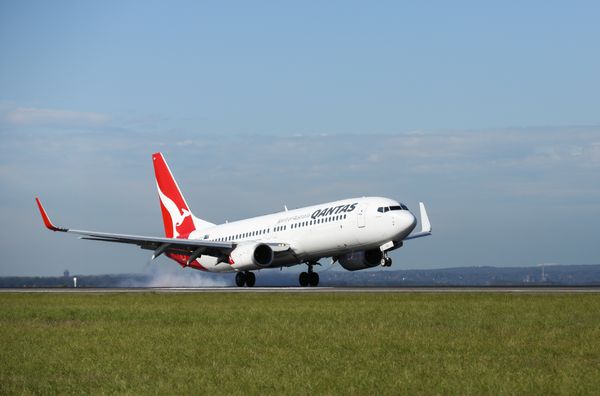The Qantas Group and Airbus will invest up to US$200 million to accelerate the establishment of a sustainable aviation fuel (SAF) industry in Australia, in a landmark agreement.
The Australian Sustainable Aviation Fuel Partnership was signed by Qantas Group CEO Alan Joyce and Airbus CEO Guillaume Faury in Doha today, ahead of the IATA AGM.
Due to the lack of a local commercial-scale SAF industry, Australia is currently exporting millions of tonnes of feedstock every year, such as canola and animal tallow to be made into SAF in other countries.
The Qantas Group, which has committed to using 10 per cent SAF in its overall fuel mix by 2030, is sourcing SAF overseas. This includes 15 per cent of its fuel use out of London currently and 20 million litres each year for flights from Los Angeles and San Francisco to Australia from 2025.
Sustainable fuels cut greenhouse gas emissions by around 80 per cent compared to traditional kerosene and are the most significant tool airlines currently have to reduce their impact on the environment – particularly given they can be used in today’s engines with no modifications.
The Qantas and Airbus partnership will invest in locally developed and produced SAF and feedstock initiatives. Projects will have to be commercially viable and meet a strict set of criteria around environmental sustainability.
Airbus and Qantas agreed to work together on the sustainability initiative as part of the airline’s recently announced orders, including the A350-1000 to operate Project Sunrise non-stop flights from Australia to New York and London and the selection of the A220 and A321XLR under the Qantas Group’s Project Winton’ domestic fleet renewal, as well as lower emission aircraft for its subsidiary Jetstar.
The new fleet will offer a significant reduction in fuel consumption and carbon emissions of up to 25 per cent from day one and are all already certified for operation using 50 per cent SAF.
The partnership is initially for five years with options to extend the duration. Qantas’ financial contribution to the Australian Sustainable Aviation Fuel Partnership includes AU$50 million previously committed to research and development of SAF in Australia.
Pratt & Whitney, whose GTF engines were recently selected by Qantas for their new A220 and A320neo family aircraft, is also contributing to the venture. The company supports greater use of cleaner, alternative fuels including SAF, while continually advancing the efficiency of aircraft propulsion technology.
Qantas has started a process of talking to its major corporate customers about their interest in accessing SAF offsets for their organisation’s flying. This input is shaping the design of a program that could also be extended to individuals in an expansion of the existing offsetting program Qantas already has in place. This new program is expected to launch later this calendar year.
